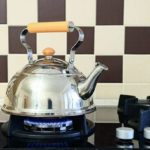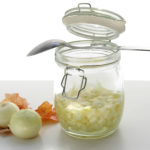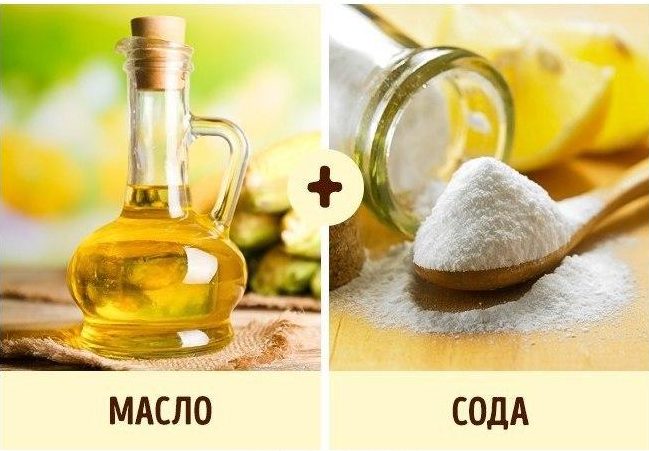Simple remedies for rust on any surface
Anyone who has tried to do this at least once in their life knows that removing rust stains, no matter where they appear, is not an easy task. After reading this article, you will learn that there are many ways to cope with this scourge.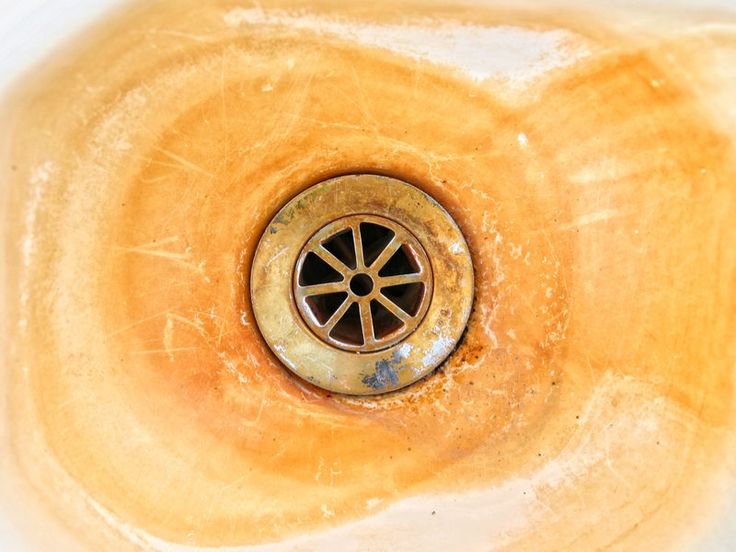
The content of the article
How to remove rust mechanically
If we are talking about large metal parts or building structures affected by corrosion, then they can be cleaned with sandpaper, a grinder, an angle grinder with a nozzle, or a sandblaster.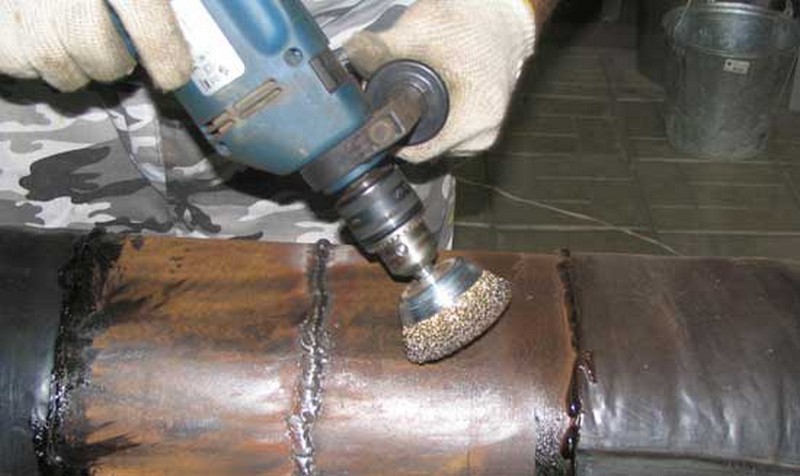
As you can imagine, scratches will almost certainly appear after this, then you will have to spend some more time sanding. Don't forget to protect your eyes with goggles and your hands with gloves. It is recommended to use a respirator or gauze bandage.
Folk remedies for rust on any surfaces
You can get rid of rust stains using folk recipes. There are many of them, we will present here the most accessible and effective ones.
Baking soda
Baking soda is an excellent abrasive. You've probably used it more than once to clean grease from a stove or sink. It will work quite well for our problem. Make a paste out of it creamy consistency, drop a little water into it, apply to the problem area, and then use a toothbrush or sponge.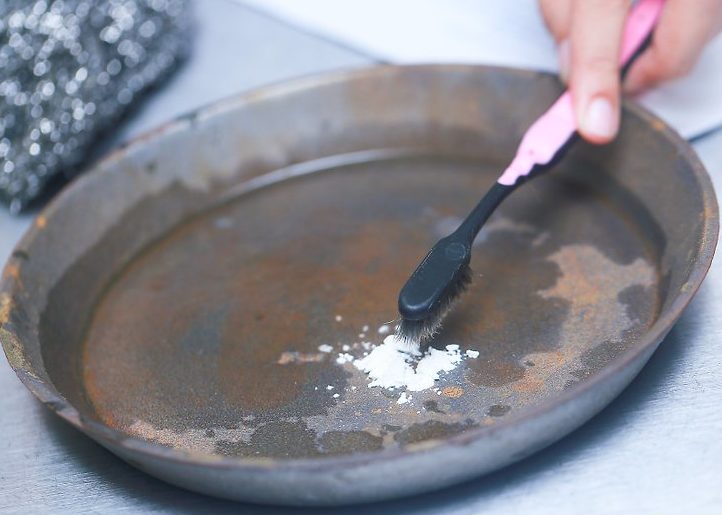
Attention! The stain will disappear, and if not, repeat the treatment until you succeed.
Fish fat
In Soviet times, it could be found in every home, especially where there were small children. It contains Omega-3 unsaturated fatty acids, which are popular today, and other substances beneficial to the body, but they are not needed for our purpose.
Fish oil is better than other fats at dissolving iron hydroxide, which makes up harmful rust. It is now rare to find it packaged in jars. Packaging with gelatin capsules is more common. They can also be used if the item being cleaned is small in size and very valuable compared to an expensive medicine. Other fats also work, but fish fats have no competitors in this matter.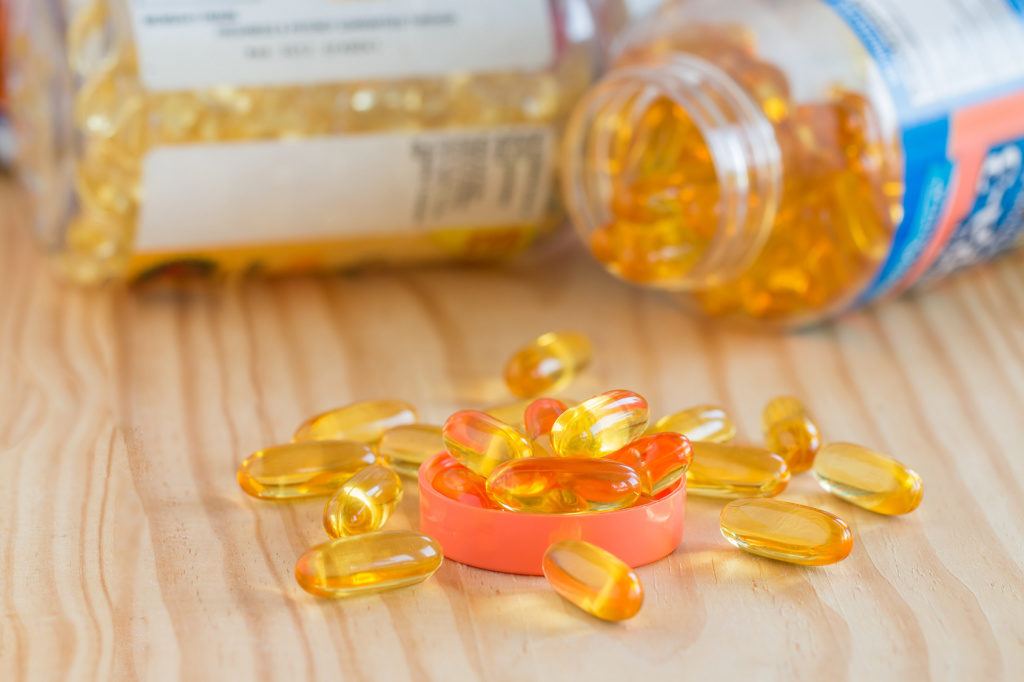
Acids: acetic, citric, oxalic, salt
Acetic acid, although not the most preferred for this purpose, is always on hand.
Soak the product in vinegar overnight (you can leave it for a day). Rinse with water. If the result does not satisfy you, repeat again and again until you cope with the problem.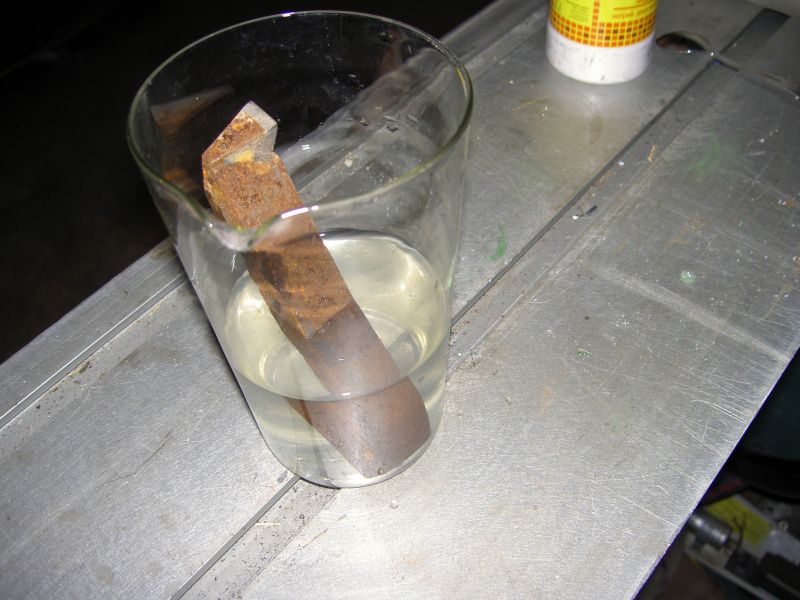
Large items that cannot be completely soaked can be cleaned by placing a cloth soaked in vinegar on them. Care must be taken that it does not dry out. Instead of regular vinegar, you can use apple.
Citric acid will cope with the problem better, although it is weaker than acetic acid. For 1 liter of water take 1-3 tablespoons, if you add more, then nothing bad will happen. If you don’t have such acid in your household, but have lemon or lime, you can take them. Cut into slices, crush and throw into water, and then proceed in the same way as with vinegar.
Attention! You can try other organic acids (lactic, oxalic, tartaric, etc.) or products containing them (kvass, kombucha infusion, kefir, yogurt).
Oxalic acid is perfect for our purpose, but we just need to remember that it is poisonous in its pure form. It is widespread in the plant world and is found not only in sorrel, but also in tomatoes, rhubarb, spinach and other vegetables.
Hydrochloric acid removes rust very well; to do this, small parts are immersed in its five percent solution until the stain completely disappears.
Important! After treatment with any acid, and salt in particular, the product must be rinsed in a weak solution of ammonia (two tablespoons per liter of water). You can take one teaspoon of soda instead. If this is not done, then you risk damaging the metal, since traces of acids will only accelerate further corrosion. Large parts can be processed using a brush.
If any acid gets into your eyes or skin, rinse them immediately with a weak solution of soda and then with clean water! It is better to work with gloves and safety glasses to avoid trouble.
Potato
Stains on baking sheets or cookware can be easily removed using potatoes. A large tuber is cut in half, dipped in salt and rubbed on the surface.
Salt acts as an abrasive, and the oxalic acid contained in the root vegetable dissolves rust. The same method can be used for glass or porcelain dishes, but plastic salt can easily be scratched, so you should use a different recipe.
Ketchup
It is necessary to squeeze, for example, a thin layer of ketchup onto the bathtub, wait four hours - sometimes thirty to forty minutes is enough, then rinse.The secret of the recipe is simple: tomatoes contain a lot of the same oxalic acid, and for better storage they also add citric acid to ketchups, which only enhances the effect. Read the labels on the packages and choose the one that suits you best.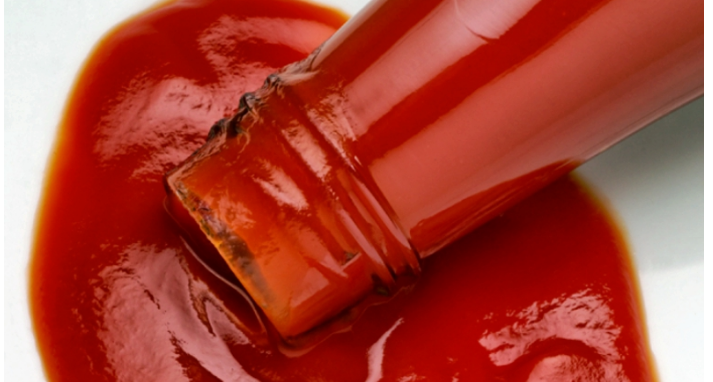
The method is especially useful for bringing knives, forks, spoons and other metal cutlery and utensils into proper shape. If you don't have ketchup, you can try replacing it with tomato juice.
Foil
Almost everyone who uses aluminum foil has microwave, so it's worth a try. For our purpose, it needs to be cut into even squares with a side of about three centimeters and applied one by one to the problem area, trying to ensure the tightest possible contact with the surface. With each piece of foil removed from the stain, you will observe its gradual disappearance.
Alka-Seltzer
Dissolve several tablets in a basin and dip the product into the liquid. The solution can be applied with a brush or sponge. The result will surprise you!
How heat treatment helps against rust
You can simply burn off rust on metal with an acetylene torch and then paint it. This method has a drawback: the stains may appear again if such treatment is not carried out carefully enough, and it is quite difficult to notice the surviving source of metal corrosion through the flame. After the first flame treatment, carefully inspect everything and try again, or you can use some other method.
Attention! Before lighting the burner, make sure that the metal being processed does not come into contact with wood, plastic, rubber and other flammable and fusible materials, otherwise you risk hopelessly damaging the item.
There are many other recipes for removing rust, such as a mixture of glycerin with tooth powder, salt with lime juice, vinegar with flour and salt, hydrogen peroxide and ammonia, kerosene, Coca-Cola and Fanta and others.
For especially valuable things (ancient coins, for example), craftsmen use electrolysis. It’s very effective, but not everyone can assemble the necessary installation for this, but if you succeed, you won’t regret it. The process is easy to control, and the result is simply excellent. Try, experiment, share your experience with others, because you are not the only one who has to fight this problem.
Do not forget to dry metal surfaces after any wet treatment by wiping them with a napkin or rag. This is especially important if you are going to paint them!

